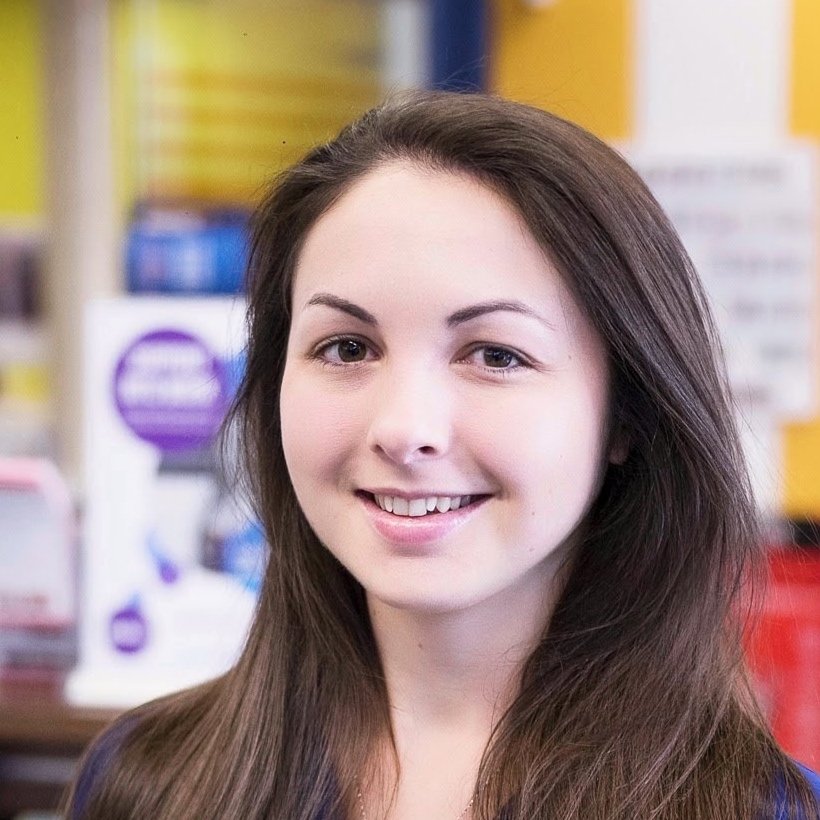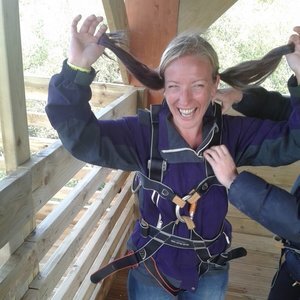Katrina L. McDonough -- Postdoctoral research fellow
Katrina completed her PhD at the University of Plymouth in 2019. Katrina's research interests lie action understanding and predictive social perception, examining the cognitive mechanisms that allow humans to make these predictions, on what kind of information they rely on, and how they interact with subsequent processes to drive perception and action. After a postdoctoral position at Andrew Bayliss’ lab at the University of East Anglia, she has re-joined the Action Prediction Lab in 2020 to work on the Leverhulme Trust grant that she co-developed “Social Perception as Bayesian Hypothesis Testing and Revision”. Katrina left the lab in 2023 to take up a position as lecturer at the University of East Anglia.
Matthew Hudson -- Postdoctoral research fellow
Matt is one of the lab's founding members, when he and Patric won an ESRC grant for the Predictive Social Perception project in 2013, to investigate how typically developing and autistic people predict other' actions, and whether these predictions reflect top-down changes of one's perceptual action representations. Matt has a BSc in Psychology & Criminology (University of Teesside, 2001) and an MSc in Evolutionary Psychology (University of Liverpool, 2002). Before joining the lab, he worked as PhD student with Tjeerd Jellema (University of Hull) and as a Research Support Officer at the University of Bangor on a project investigating the development of mirror neurons in humans. After working with Lari Nummenaa at Aalto University, Finland, and a position at the University of Dublin, he is now Lecturer at the University of Plymouth.
Dr Eleonora Parrotta -- PhD researcher
Eleonora completed her Master’s degree in Cognitive Neuroscience and Psychological Rehabilitation at La Sapienza, University of Rome (Italy). She developed a research project at the Cognitive, Social and Affective Neuroscience Lab (COSAN - AgliotiLab). Eleonora started her PhD in October 2018, supervised by Patric and Joost Rommers. She investigates how predictive processes shape not only our perception of the (social) world, but also of our interoceptive states. She is currently in Italy, as part of a collaborative project with Marcello Costantini and Francesca Ferri investigating how threat and pain influences our perception of our heartbeats.
Dr Helen Sharps -- PhD researcher
Helen began her PhD at Plymouth University in 2014, after completing her undergrad and Masters degree here, and after being involved in several projects including; what makes up reaction times, how nystagmus waveforms affect visual acuity and how empathy in normal and deviant populations differ. In addition, Helen is mildly obsessed with children’s games and has been running a study using card games and rock-paper-scissors for more than five years. This has spilled over into her PhD, the focus of which is to investigate the effects of top-down contol on automatic imitation. Helen completed her PhD in 2021.
Dr Eleanor Ward -- PhD researcher
Eleanor completed her BSc in Psychology at Plymouth University in July 2016, and began her PhD in October 2016. During her undergraduate degree, Eleanor was awarded a Wellcome Trust Summer Studentship, and worked in collaboration with Dr Magdalena Ietswaart of Stirling University, and Dr Patric Bach, exploring action prediction in children with autism, using eye-tracking technology. Eleanor’s PhD investigates visual perspective taking, and to what it is enhanced by socially relevant stimuli (e.g. emotional expression, mutual eye gaze). Eleanor’s PhD is being co-supervised by Patric and Giorgio Ganis. Ellie completed her PhD in 2020, and works now as a data scientist at Equiniti.
James Colton -- PhD researcher
James started his PhD in in 2015 and is just about to enter his final year. He spends much of his time playing with modern statistical modelling techniques in R and staring in bewilderment at his ever growing to-do list. His research concerns the psychology of willed action; how goals and intentions influence our behaviour as we interact with the world. More broadly, he is interested in more esoteric ideomotor phenomena, such as Chevreul’s Pendulum or the use of a Ouija board, and how they relate to recent developments in action control research. James completed his PhD in 2020 and is now part of NHS research team.
Dr Kimberley Schenke -- PhD researcher
Kim worked in the lab from 2011 to 2016, as part of a combined PhD/Teaching and Research Associate position at Plymouth University, supervised by Patric and Natalie Wyer. Her research cut across social and social cognitive neuroscience. She tested, using both behavioral and EEG/ERPs, whether person models, as known from social psychology, can be brought to bear in action observation. She holds a BSc in Psychology (Sheffield Hallam University, 2008) and an MSc in applied cognitive neuroscience (Sheffield Hallam University, 2009). Prior to joining the lab, she worked as a research assistant with Dr. Natalie Wyer (Plymouth University) investigating the cues and consequences of social exclusion. She is now a lecturer at the University of Gloucestershire.
Dr Nicholas Lange -- PhD researcher
Nick completed his degree in psychology (diploma, MSc equivalent) at the Christian-Albrechts-University of Kiel, Germany, in 2010, with a thesis on the effects of feedback on representational momentum. Heworked as a Research Assistant in Kiel, Germany, on a project exploring the characteristics of apparent motion perception, and, from 2011, at Plymouth University, on a project investigating unconscious plagiarism, a memory bias. Based on this research, he started a PhD on source misattributions of action memories with Prof Tim Perfect and Dr Patric Bach in October 2013. Nick now works as a post-doc with Chris Berry (Plymouth University) on an ESRC grant with the goal of modelling explicit and implicit memory.
Dr Toby Nicholson -- PhD researcher
Toby used the representational momentum paradigm, to measure how cues such as eye-gaze, grasp-type, verbal and emotional information guide predictions of the actions of others., thereby laying the groundwork for the research on Predictive Social Perception. Toby joined the lab as a PhD student, after completing a Masters at the ActionPredictionLab that investigated, using fMRI, whether brain responses to action goal understanding overlapped with those involved in motor kinematic processing, or object processing. Before that, he completed a BA in Film studies with Media communications at the University of Gloucestershire, and worked for a number of private companies within the financial sector. He now works as a post-doc at the University of Kent.
email -- Homepage -- scholar profile
Dr Bassem Khalaf -- PhD researcher
Coming from Iraq, Bassem joined the lab to work on a PhD project linking mental practice and imitation learning with ideomotor models of action control. He is generally interested in understanding the link between perception and action and how mental rehearsal facilitates motor tasks and makes them more automatic. Prior to his PhD, he taught in Baghdad University, Diyala University, Basrah University, Wasit University, and Al-Mustansiriya University. He now works as a lecturer in Iraq.









